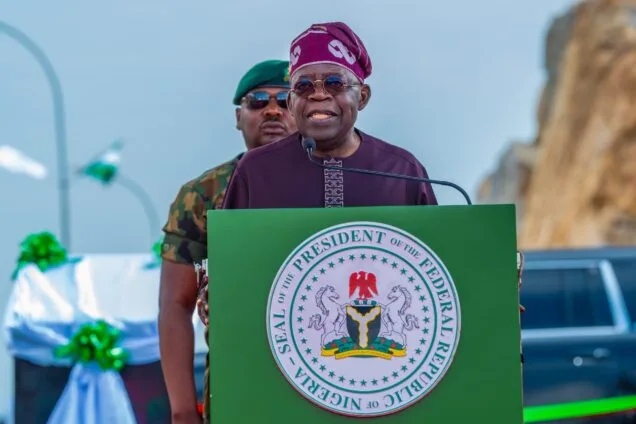President Bola Ahmed Tinubu on Thursday granted presidential pardons to several prominent Nigerians, both living and deceased, as part of a broad exercise of executive clemency endorsed by the National Council of State.
Among those granted posthumous pardons are Herbert Macaulay, one of Nigeria’s founding fathers, and Major General Mamman Vatsa (retd.), a former Minister of the Federal Capital Territory under the Babangida regime. Macaulay, who played a key role in Nigeria’s early nationalist movement, was twice convicted by the colonial authorities. In 1913, while working as a private surveyor, he was tried and jailed for allegedly misappropriating funds from an estate he administered—a case that historians continue to debate in terms of fairness and motive.
Vatsa, a soldier, poet, and public intellectual, was executed in 1986 following a conviction for treason during the military regime of General Ibrahim Babangida. His pardon comes nearly four decades after his controversial trial and execution.
Also granted a posthumous pardon was Dr. Nnamdi Azikiwe, Nigeria’s first President and a founding leader of the National Council of Nigeria and the Cameroons (NCNC).
A total of seventeen individuals received presidential pardons during the exercise, including several prominent figures and former public office holders. Among them are Farouk Lawan, a former Member of the House of Representatives; Anastasia Daniel Nwaobia, a former Permanent Secretary; Barrister Hussaini Umar; and Ayinla Saadu Alanamu. These individuals were pardoned following recommendations that they had shown sufficient remorse and demonstrated readiness for reintegration into society.
Also pardoned were Nweke Francis Chibueze, serving a life sentence for drug trafficking, and Dr. Nwogu Peters, who had completed 12 years of a 17-year sentence for fraud.
Significantly, the Ogoni Nine, executed in 1995 under the Abacha regime, were granted posthumous pardons. The group included Ken Saro-Wiwa, Saturday Dobee, Nordu Eawo, Daniel Gbooko, Paul Levera, Felix Nuate, Baribor Bera, Barinem Kiobel, and John Kpuine. In a symbolic gesture, President Tinubu also awarded national honours to the Ogoni Four—Chief Albert Badey, Chief Edward Kobani, Chief Samuel Orage, and Theophilus Orage—recognizing their legacy and contribution to justice and equity.
In further exercise of his constitutional powers, President Tinubu granted clemency to 82 inmates, reduced the sentences of 65 others, and commuted the death sentences of seven inmates to life imprisonment.
These actions followed recommendations from the Presidential Advisory Committee on the Prerogative of Mercy (PACPM), chaired by the Attorney General and Minister of Justice, Prince Lateef Fagbemi (SAN). Other members of the 12-person committee include Chief Akinlolu Olujinmi, CON; Professor Alkasum Abba; Professor (Mrs.) Nike Y. Sidikat Ijaiya; Justice Augustine B. Utsaha; and Dr. Onwusoro Maduka, who served as Secretary and is a former Permanent Secretary. Institutional representatives on the committee include officials from the Nigeria Police Force, Nigerian Correctional Service, National Human Rights Commission, the Nigerian Supreme Council for Islamic Affairs (NSCIA), and the Christian Association of Nigeria (CAN).
The Committee’s report, presented to the Council of State as required by the Constitution, detailed its work. A total of 175 inmates were interviewed, and 62 applications were received on behalf of 119 others—making a total of 294 cases considered. Eighty-two inmates were recommended for clemency, two for pardons, 65 for reduced sentences, and seven death-row inmates for commutation to life imprisonment. Fifteen ex-convicts were recommended for presidential pardon, eleven of whom are deceased, including members of the Ogoni Nine. The Ogoni Four were also recommended for posthumous national honours.
The committee based its recommendations on several criteria, including old age (60 years and above), terminal or life-threatening illness, youth (16 years and below), long-term convicts who have served more than 10 years with a record of good behavior, inmates who have acquired vocational skills while in custody, those deemed genuinely remorseful, those recommended by correctional officers for exemplary conduct, and Nigerian prisoners repatriated from foreign countries.
The Presidential Advisory Committee on Prerogative of Mercy (PACPM) was inaugurated on January 15, 2025, by the Secretary to the Government of the Federation, Senator George Akume, as part of the Tinubu administration’s commitment to justice reform, rehabilitation, and the protection of human rights in Nigeria.


